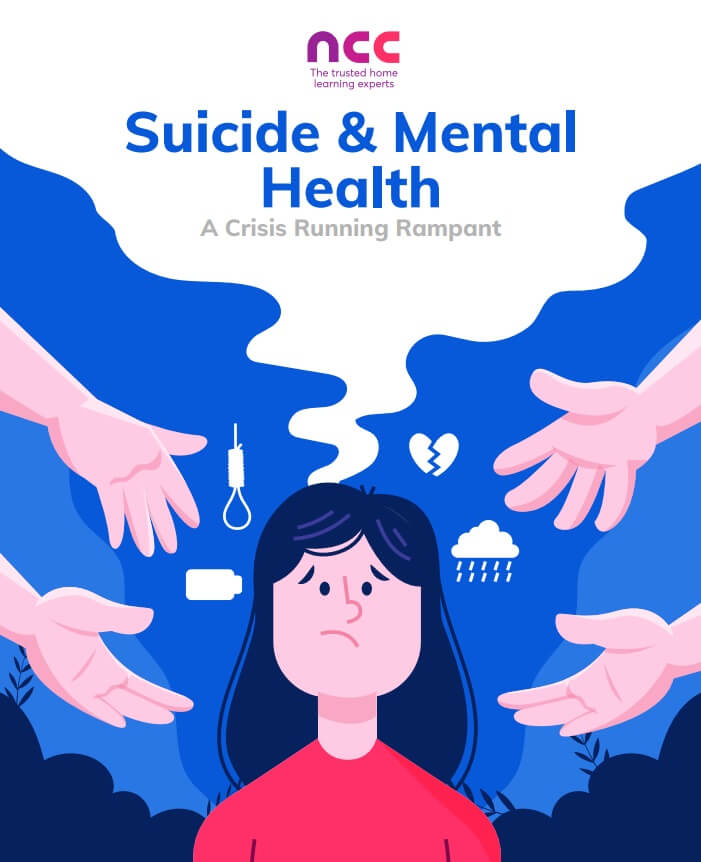
Mental health is a bigger issue now more than ever. With the rise of the internet and increasing pressure to appear picture-perfect 24/7, ongoing political and climate issues across the world, and rising stress levels caused by the pressures of modern-day life, people are being pushed to their breaking points.
Facing the facts and learning about the mental health problems which affect those around us is one way that we can all spread awareness. Continuing to read will help us to understand the bigger picture of mental health in the UK. This will also contribute to our awareness of others who are most susceptible, as well as teach us how to make our own mental health a priority.
What is the suicide rate in the UK?
Suicide is one of the leading causes of death amongst 15–19-year-olds, with men having a much higher suicide rate than women[i]. Suicides account for 11 deaths per 100,000 of the UK population. According to the UK Government site, there were 5,583 registered suicides in England and Wales in 2021 alone.
People’s reasons for taking their lives vary – they may have been suffering from a mental illness for a while or gone through a traumatic event. Whatever the reason, suicide is not a decision taken lightly, and the impact of someone passing in this way can completely devastate families, friends, and communities.
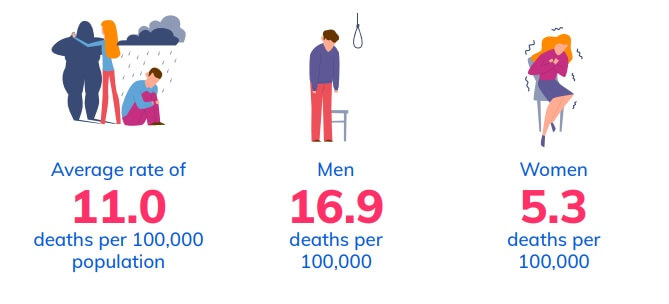
Countries with the highest suicide rates
Globally, the UK comes 119th in terms of suicide rates per 100,000[ii]. Lesotho, a country in Southern Africa, has the highest suicide rate in the world by a very large margin. Other African countries, Guyana and Eswatini fall 2nd and 3rd.
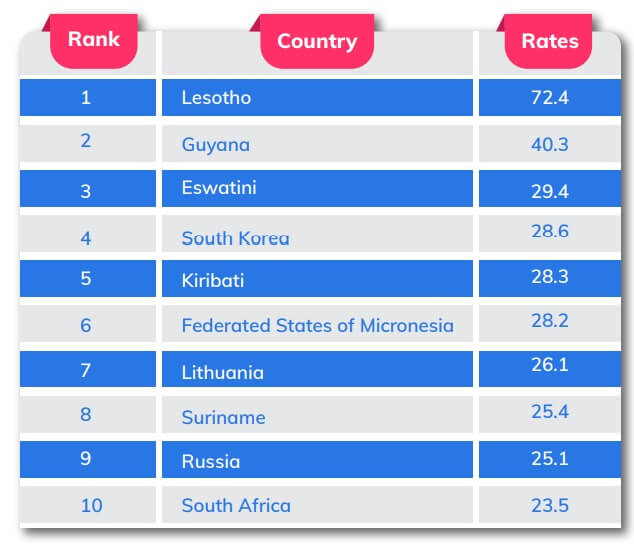
Most common mental health issues in the UK
So, what are people in the UK struggling with? Data shows that a shocking 20.6% of us suffer from suicidal thoughts, with over 7% of the population reportedly having mixed anxiety and depression, or self-harming.
Other mental health issues diagnosed in the UK include PTSD, depression, BPD and OCD.
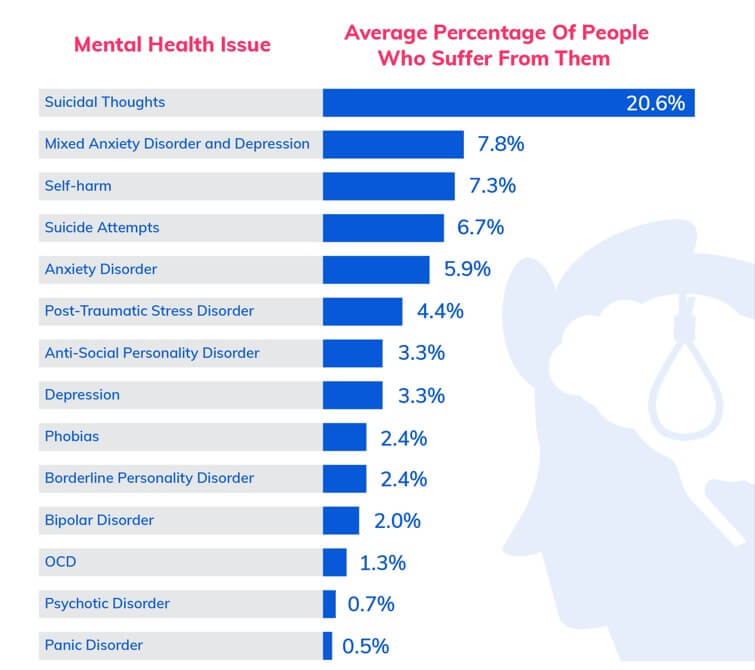
Mental health facts
Taking care of our mental health is vital to our overall health. Our mental health determines the way we handle stress, the choices we make and how we relate to one another. However, mental health-related issues are surprisingly common. Here are some mental health facts:
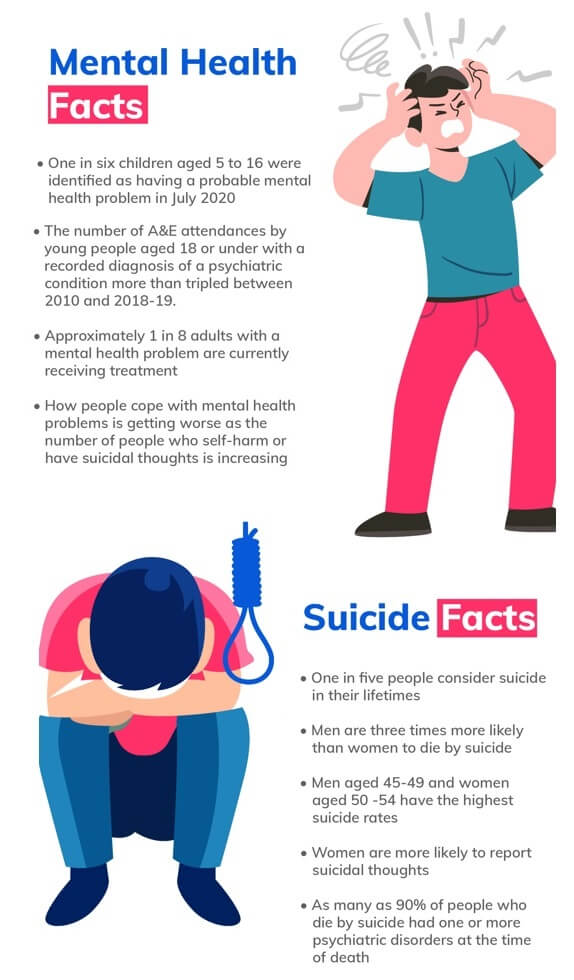
Which groups are most susceptible to suicide, or mental health issues?
Many factors, including personal backgrounds, economic placement and social situations can put people at more risk of developing or suffering from mental health issues. Research has discovered that black people, those in LGBTIQ+ communities, multiply disadvantaged people and young women are at very high risk of struggling with their mental health.
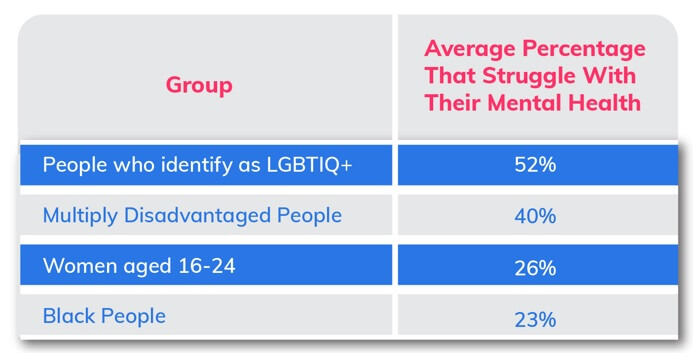
Why is mental health suffering in the UK?
A mixture of societal stigma, budget cuts and lack of resources means that people in the UK are having to fight harder to get help with their mental health. For example, only 27% of those who died by suicide between 2005 and 2015 had been in contact with mental health services during the year before they died. These are some of the core reasons for the lack of resources.
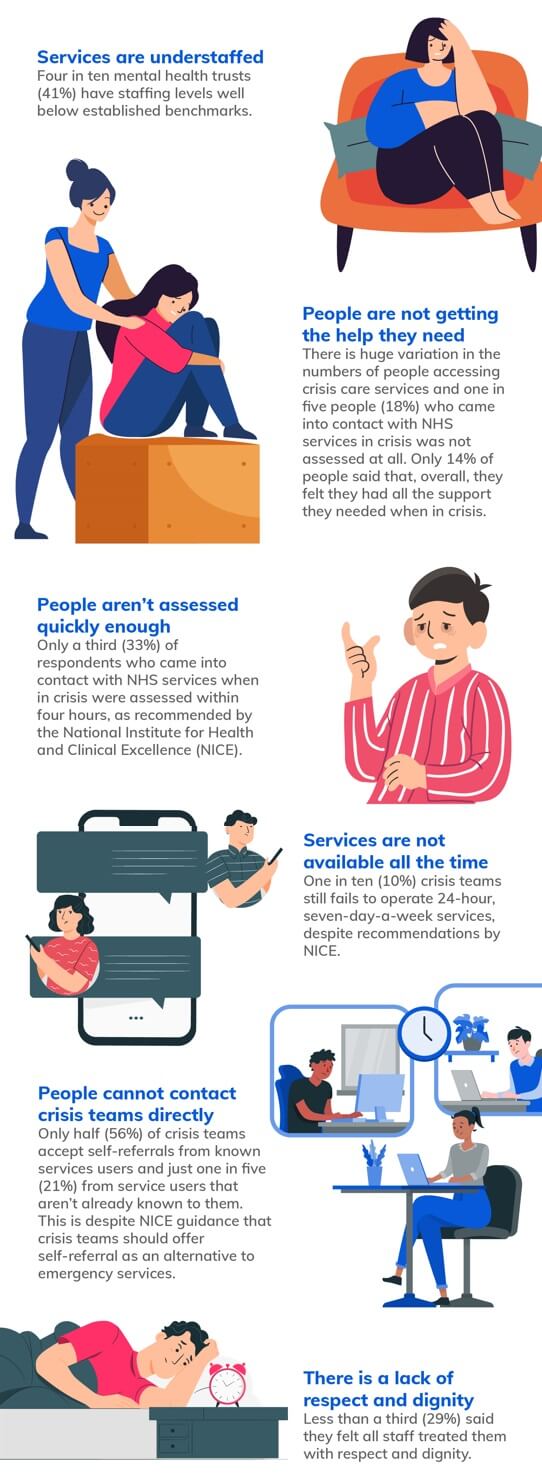
How to look after your mental health
When times get tough, it’s vital to know where to turn and how to look after yourself. It can be hard, but once you are aware of where to start, and the resources available to you, you can begin taking care of yourself mentally, spiritually, and physically. Some of the best ways of taking care of your mental health include talking about your feelings, keeping active, drinking sensibly and eating well.
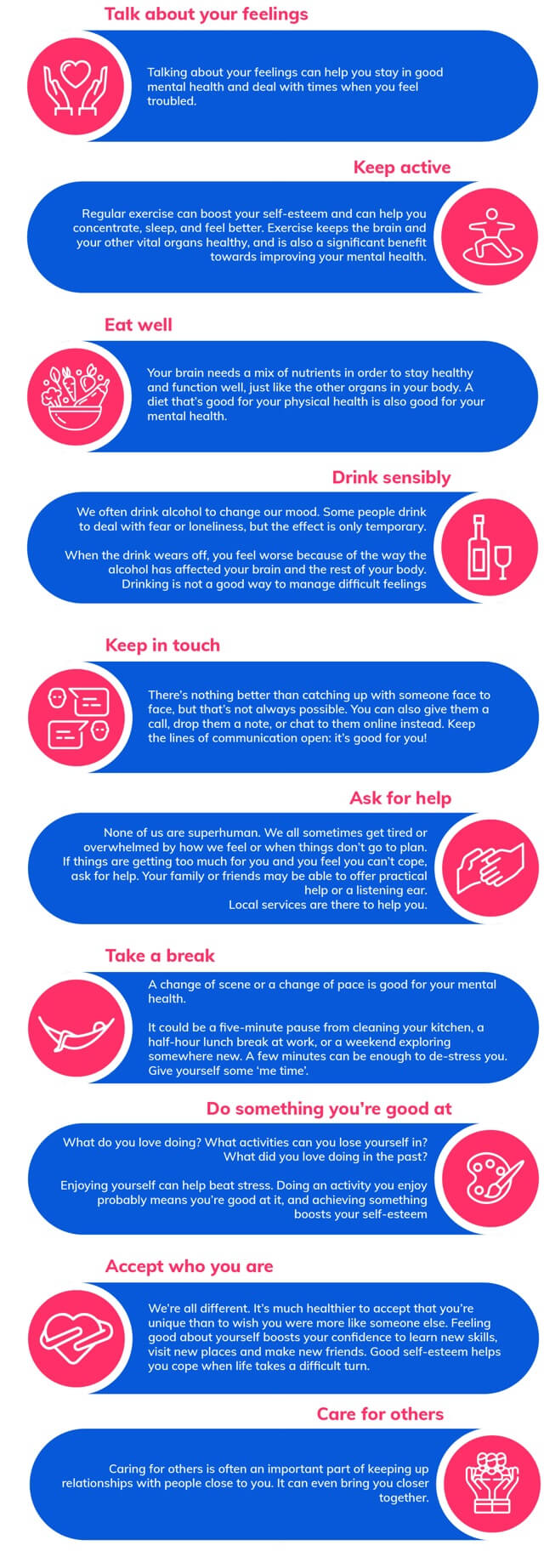
Getting help
There are always places that you can turn for help. Here is a list of numbers to call or text when life gets tough.
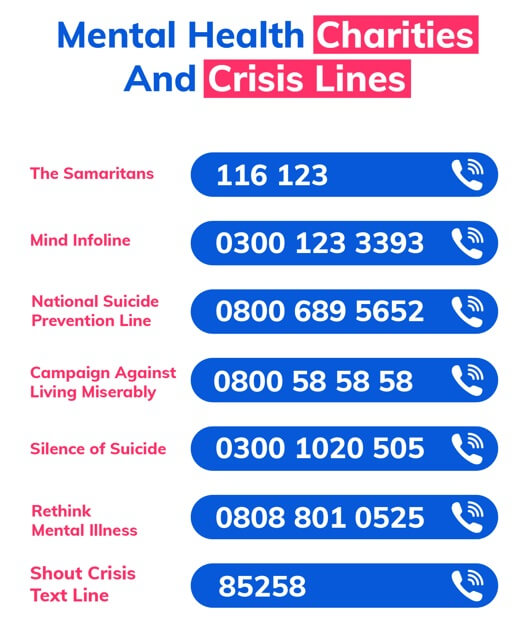
Alternatively, there are several people you can get in touch with closer to home. For example, you can call your GP for an emergency appointment, call NHS 111 to find support or, if you have one, you can contact your mental health crisis team.
If you want to help others who are in crisis or having a hard time, you should look at volunteering for an organisation like The Samaritans or seek out a career in mental health services. Taking a counselling course online or mental health courses online is a good place to start.
Graphic Sources
https://worldpopulationreview.com/country-rankings/suicide-rate-by-country
https://www.mind.org.uk/media-a/2958/statistics-facts-2017.pdf
https://www.stonewall.org.uk/lgbt-britain-health
https://www.mentalhealth.org.uk/publications/how-to-mental-health
https://www.mentalhealth.org.uk/explore-mental-health/a-z-topics/suicidal-thoughts
Written Sources
[i] https://www.who.int/news-room/fact-sheets/detail/suicide
[ii] https://en.wikipedia.org/wiki/List_of_countries_by_suicide_rate








